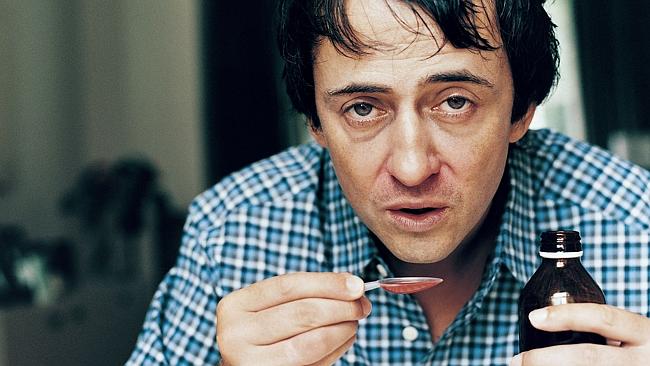
Hard to swallow … Fifty per cent of prescription medicines will rise in price on July 1 under a new deal with chemists. Picture: News Corp. Source: News Limited
HALF the medicines on the drug subsidy scheme will rise in price on July 1 in secret bombshell hidden in the new pharmacy agreement signed with chemists last week.
Any medicine that currently costs consumers less than $36 will be hit by the rise, the full impact of which was only revealed by Health Department officials in a Senate estimates committee yesterday.
The price rises result from the introduction of a new $3.49 new handling fee paid to chemists that replaces a 15 per cent mark up under the new five year pharmacy agreement signed last week.
The price rises — as much as $3.46 or 41 per cent — will affect nine of the ten most prescribed medicines in Australia including the anti-cholesterol pills atorvastatin, rosuvastatin and simvastatin, blood pressure medicines perindopril and irbesartan and diabetes medicines metformin.

Bitter pill … The price rises will hit nine out of 10 prescription medicines. Picture: Thinkstock Source: ThinkStock
Thousands of other medicines including antibiotics, osteoporosis medicine alendronate, depression medicine fluoxetine, arthritis drug meloxicam and breast cancer drug tamoxifen will also be hit.
Analysis shows the price of these medicines will rise by around $2-$3 per script. Some of these medicines will go down in price 14 months later when other changes to the drug subsidy scheme kick in.
For example, anti-cholesterol medicine rosuvastatin will cost $1.10 more from July 1, but then its price will fall by $11.49 in October 2016.
Atorvastatin will cost $2.42 more from July 1 but fall in price by $3.92 from October next year.
Taxpayers will have to pick up the bill when concessional patients like pensioners buy the medicines.
However, the government will save money as a result of the change when the dispensed price for the maximum quantity of the medicine costs more than $36.
This is because the $3.49 handling fee is less than the current mark up the government pays for the medicine.
General consumers will have to pay the extra out of their own pocket.

Surprise … The price rises were not mentioned when Health Minister Sussan Ley announced the pharmacy agreement last week. Picture: Supplied Source: Supplied
Unlike the government, general consumers are unlikely to make any savings when their drugs cost more than $36 because that is around the point where the PBS subsidy kicks in at $37.70 and this is the maximum they can pay for a medicine.
The price rises were not mentioned by Health Minister Sussan Ley in any of her press releases or material made public about the agreement last week.
Instead, her announcement focused on the optional $1 discount chemists can now make to the medicine copayment and the fact some drugs will fall in price.
Australian Medical Association GP spokesman Dr Brian Morton says some of his patients with diabetes and heart problems are taking up to seven medications.
News Corp has calculated the price rises could add around $18 a month to the prescription bills of such patients or $218 a year.
National Seniors chief Michael O’Neil said “the power of the Pharmacy Guild has been exercised at the cost of the consumer who is going to have to pay more”.
“The Guild has won again and it is consumers who will pay for it, it’s a complete failure of reform,” he said.
AMA president Dr Brian Owler said there was plenty of evidence that when medicine prices rose some people stopped taking their drugs.
Health Minister Sussan Ley has defended the reforms and says they are needed to keep pharmacies viable after they lost 16 per cent of their dispensing income when medicine prices fell under price disclosure.

Price hike … Health Department secretary Martin Bowles says he can’t guarantee chemists won’t pass on the new charge to consumers. Picture: News Corp Source: News Corp Australia
“Looking at any measure in isolation ignore the integrated package that also contains major benefits to consumers that will see many of these common drugs also drop by as much as 50 per cent next year,” she said.
Health Department First Assistant Secretary Felicity McNeil told Senate estimates yesterday general patients would not pay extra as a result of the change because of competition in the pharmacy sector.
“If you are a general patient who accesses scripts under the general copayment you are not going to see a change in the price of your medicine,” she said.
Later she said she “couldn’t give you an absolute that in the 5,400 pharmacies as to what will happen exactly in every circumstance”.
The Pharmacy Guild of Australia which represents the nation’s 3,000 pharmacy owners said there was pharmacy competition but it could not guarantee the price rise would not be passed on to consumers.
Consumer group CHOICE said its latest consumer pulse survey found 64 per cent of consumers were concerned about the cost of medicines.
“It would be greatly concerning if medicine prices were to increase significantly given so many Australians are already struggling the cost.”
Originally published as Hidden drug costs to hit patients
